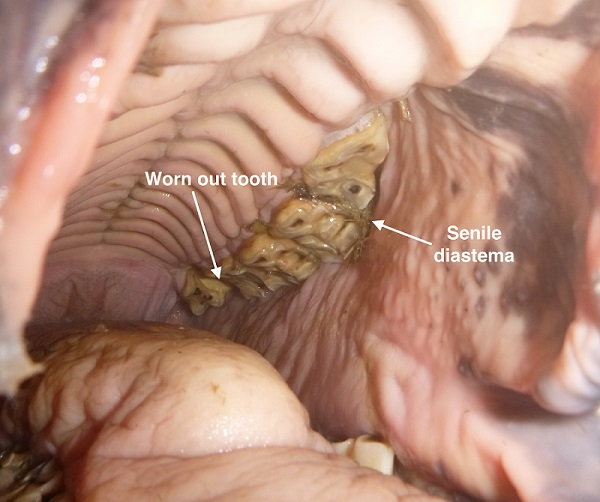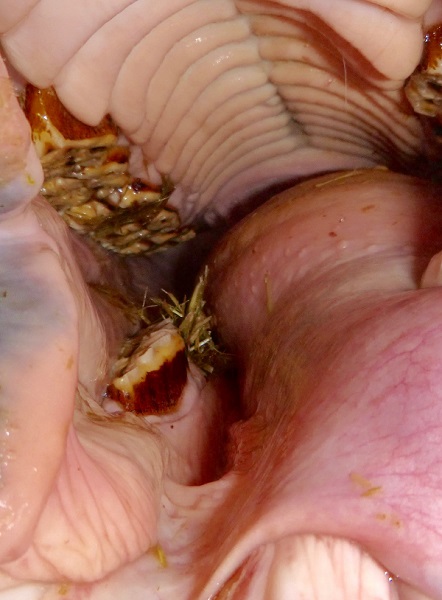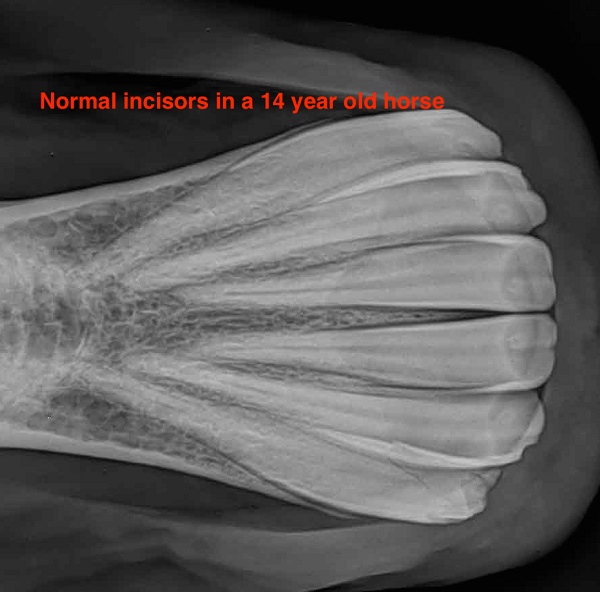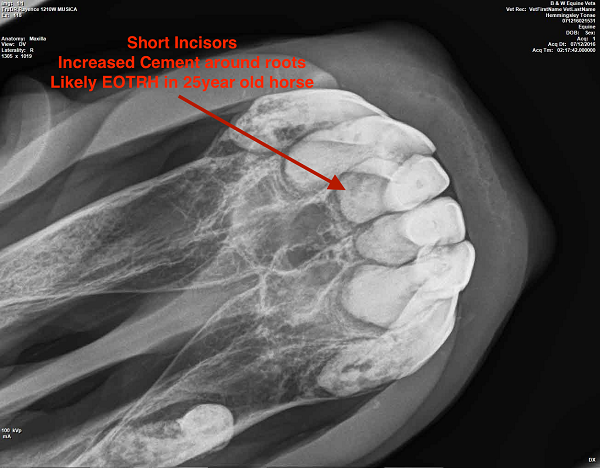Dental disease in older horses is well documented. The chance of your horse developing disease within his or her mouth increases as they pass the age of 15 years old. One study found that gum disease is found in 80% of horses over the age of 20 years old.
It is essential that your horse has a thorough dental exam as part of a routine health check. We know that disease in the mouth can be a sign of systemic disease, the most common being Cushings.
As medical intervention and improved management of your horse has seen the average horse living longer, we are know seeing a greater amount of age related dental problems as the teeth are reaching the latter stages of their life cycle.
The effective chewing surface becomes limited from the age of 20 years old. This can reduce the chance of your horse’s abilty to chew normal hay and haylage. If it is not managed properly it can progress in its severity.

This picture shows an older horse’s mouth with multiple teeth beginning to wear out.
We also see food packing between the teeth as horses get older- this is called ‘senile diastemata’
The teeth naturally taper in length and this increases the ability for food material to get trapped between the teeth (know as senile diastema formation). This can lead to painful gum disease and is a very common cause of dropping hay.

Here we can see the painful packing of food between the teeth- known as a ‘diastema’
We are also starting to see a greater amount of age related dental disease, some of which we are still in the early stages of understanding. One such disease is ‘EOTRH’ which can cause marked incisor pain and stop your horse grazing.


The key to managing the older horse’s mouth is regular check-ups and carrying out small amounts of work where possible. Any concurrent illness must be treated as it is often linked to dental disease e.g. Cushings.
We know that some of the teeth will be slightly mobile as they are older. It is important to pay attention to this when rasping teeth and sometimes motorized dental equipment will be advised to reduce the amount of movement sometimes seen with hand rasps.
If we find that your horse cannot cope with eating their normal feed and forage then it may be that we change the diet, working along side an equine nutritionist where necessary.
Article by
Sam Bescoby BVSc CertAVP(EP)(ESO)(ED) FHEA BAEDT MRCVS
RCVS Advanced Practitioner in Equine Orthopaedic Surgery
RCVS Advanced Practitioner in Equine Dentistry
